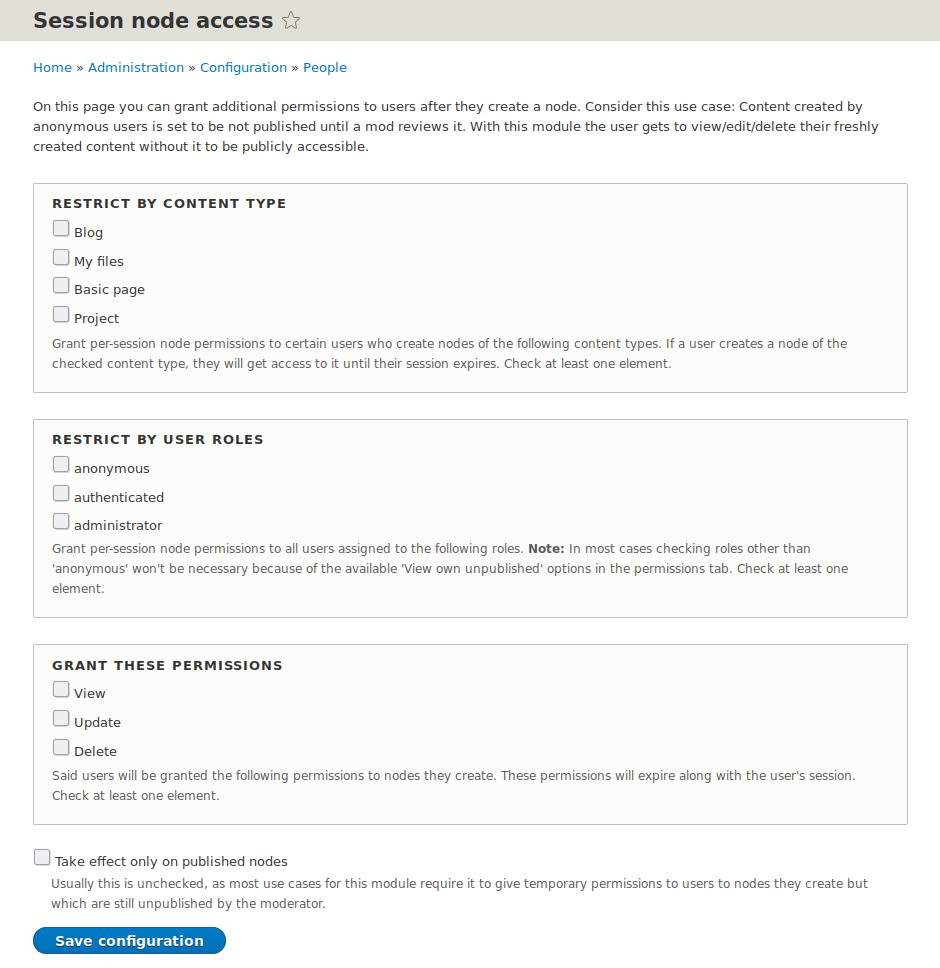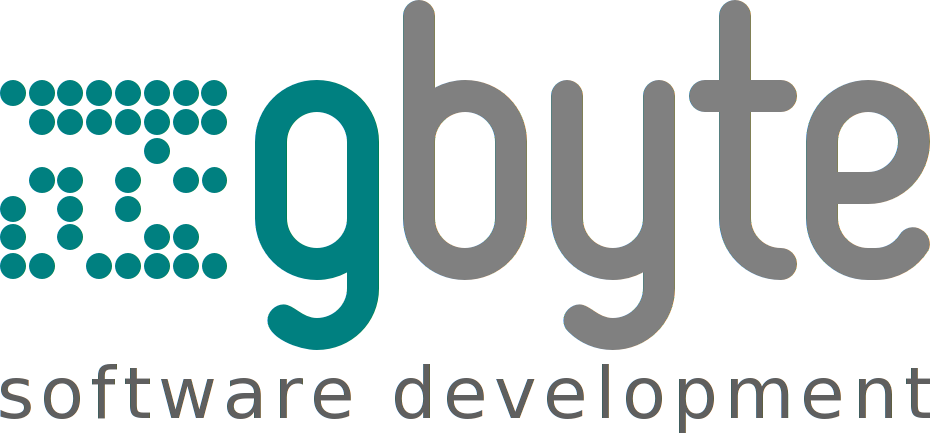
Letting users create content without having to register (or going through any other annoying process) is becoming an important customer engagement strategy.
When you allow anonymous users to create content on your website, you want this content to go through a moderation process before it becomes publicly available. To implement this in Drupal, the anonymous user has to be given permission to create content and the content type needs to be unpublished by default.
The problem with Drupal 7 and Drupal 8 is that as soon as the anonymous user saves new content, they loose access rights to it and get redirected to an 'Access denied' page which is not very user friendly.
In addition to the above, you may want the anonymous user to be able to edit or even delete their own content in case they find an error right after submitting it. Users often find typos or other kinds of mistakes right after content submission.
Gbyte created the Session Node Access module to tackle exactly these issues. The module allows administrators to grant certain user roles (not only anonymous users) specific permissions to content they created. These permissions last only as long as the browsing session lasts; after that, the regular permissions apply again. This way it is possible to allow guests or users of a certain role to keep access to their content, even if it is pending for approval.
Now Session Node Access has been ported to Drupal 8 - thank you to Gaël Gosset for doing the initial porting.
Right now this module works only with nodes, we may implement it for other entities in case of demand.
Feel free to download Session Node Access from its module page.
Session Node Access configuration screen:


Add new comment